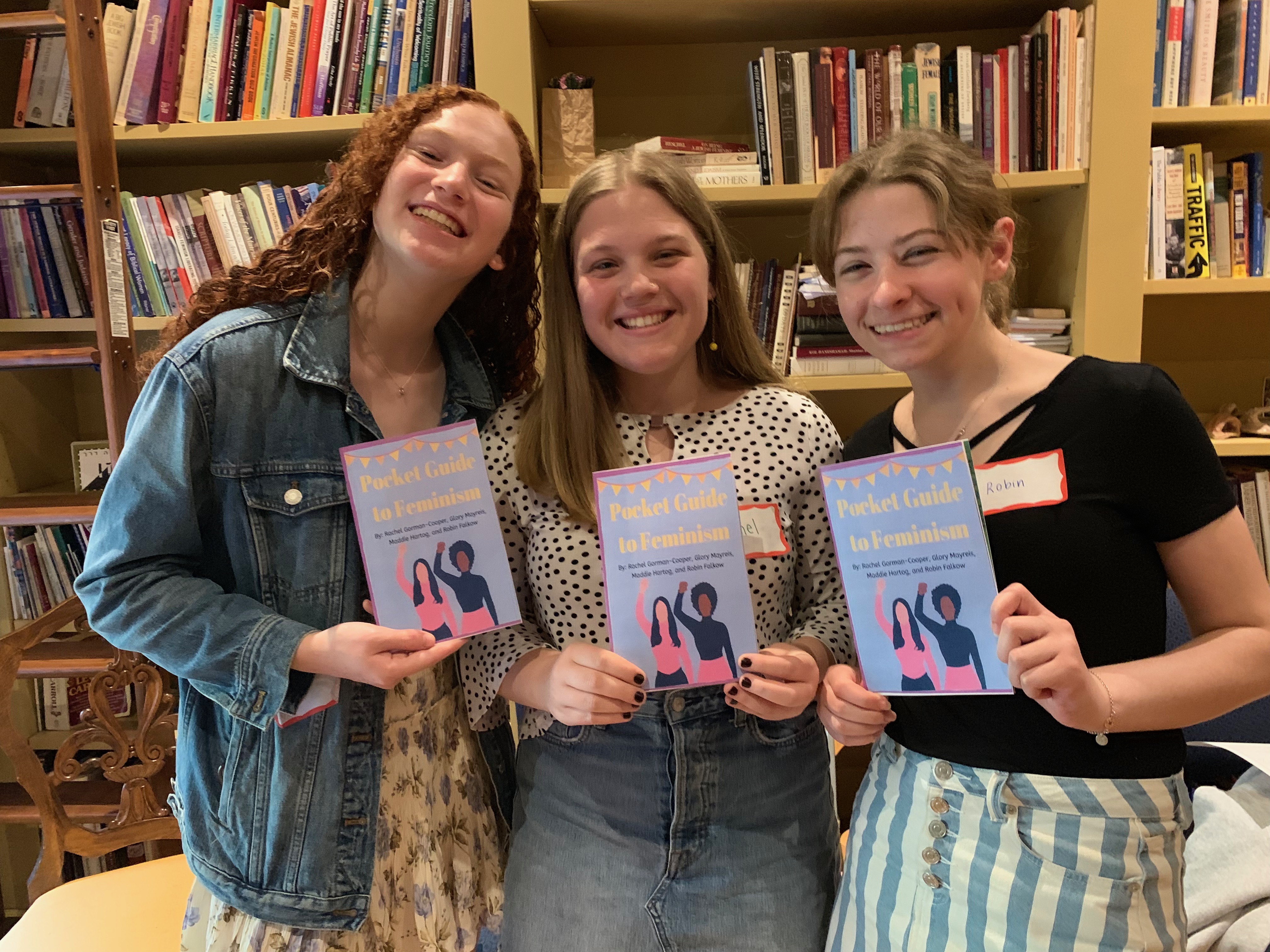Co-written by Rabbi Tamara Cohen (2018-19 Kol Koleinu A Teen Feminist Fellowship facilitator) and Rachel Gorman-Cooper a two-year participant of Kol Koleinu).
Moving Tradition’s Kol Koleinu fellowship, offered in collaboration with NFTY: The Reform Jewish Youth Movement, invites young Jewish feminists of all genders nationally to explore and deepen their feminist knowledge, channel their voices to share their beliefs, and use their skills to create tangible change in their communities. Kol Koleinu translates to “All of Our voices” The name of the program was created as way to signal a feminism that is gender inclusive and a vision of a community that truly elevates and celebrates all voices.
In mid-May, the 2018-19 Kol Koleinu fellows and their parents gathered on a sunny afternoon in Manhattan to celebrate their accomplishments. The afternoon was an inspiring and hopeful one, appreciated after a week in which women’s rights were newly threatened by Alabama’s anti-choice legislation. The fellows shared the interesting and thoughtful activism projects that they completed as part of the fellowship: a zine about feminism, a toolkit for exploring gender expression and clothing, and a thirty-day Instagram based self-affirmation and body positivity challenge. As the participants spoke about their projects, their sense of empowerment to be a force for change in their lives and the lives of their peers was palpable. It was enlivening to witness the community and the pride they felt about what they had learned and achieved. One participant, Rachel, shared the following reflection about her time in Kol Koleinu – how the fellowship not only transformed her understanding of feminism but also her understanding about herself.

I applied to Kol Koleinu with the hopes of turning my limited knowledge of feminism from RBG being a cool woman to a broader understanding of feminism. I quickly achieved these goals through slideshows and interactive conversations. Over the year, I learned about gender socialization, gender inclusion, body positivity, reproductive rights, and intersectional feminism. But more importantly, Kol Koleinu has been about exploring my own self, bridging the gap between my female and my Jewish identities. The year began with a retreat. On a rainy October weekend, I sat on the floor of a cabin at URJ Kutz Camp and had personal conversations with my peers. We all ended up discovering new things about ourselves and by the time we went to sleep, we were more than just participants in a program together; we were friends.
Over the course of this year, I applied my strong sense of self to my online teachings. I made a presentation with my group members about strong Jewish women, and I can now list the accomplished feminists who inspire me off the top of my head. Later in the year, I started recalling important facts about institutional oppression in my everyday life. The world became a more vibrant place, full of knowledge about my role in the world and how to include others of every identity alongside me.
My favorite thing that I produced as part of the fellowship was my group’s activism project: a tangible representation of everything I know and feel about gender equality. Through a series of late-night phone calls with our editor, Jenny, my group and I brainstormed ways to break down feminism for those who do not understand it. We then printed our piece of art: a zine called, “Pocket Guide to Feminism.” The most beautiful thing about it is that feminism will not stop in the intimate bubble of Kol Koleinu; it can now reach across the threshold to readers and friends who have our same passion.
Kol Koleinu has been a two-step journey of enlightenment and application. However, the most important thing it has taught me is self- awareness. I am now aware of sexism that occurs in the subtlest of ways. I am just as aware of my role in a classroom, at a sleepover, and on public transportation as I am of my role in society as a whole.
When I apologize to a man who holds the door for me, I catch myself, straighten my back and smile. The next time it happens I swallow the apology. When my chorus teacher tells the soprano section (mostly made up of girls) that they are throwing a “hissy fit” by asking for their note again, I tell him to rephrase and treat the tenors (mostly made up of boys) the same way. When the girls in my class are afraid to raise their hands, I ask their questions for them and encourage them to do the same. I thank Kol Koleinu for equipping me with such conscientiousness. I am forever grateful for this enriching experience.
